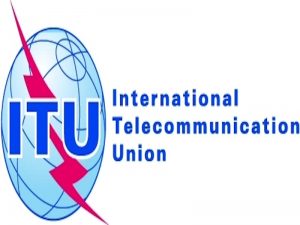ITU moves to drive internet access for rural connectivity in Nigeria
October 18, 2022563 views0 comments
By Olivia Nnorom
The International Telecommunications Union (ITU) said it is collaborating with Nigeria’s Ministry of Communications and Digital Economy to ensure that rural communities in the country have access to the internet.
 Doreen Bogdan-Martin, newly elected secretary-general of the ITU, who disclosed this at the weekend, said only 50 percent of rural communities in Africa are connected, hence the need to work with the governments to bridge the connectivity gap.
Doreen Bogdan-Martin, newly elected secretary-general of the ITU, who disclosed this at the weekend, said only 50 percent of rural communities in Africa are connected, hence the need to work with the governments to bridge the connectivity gap.
According to Bogdan-Martin, this partnership with the Nigerian government will ensure that more women in rural areas have access to the internet because when more rural women have access to the internet, their productivity would increase.
Read Also:
At an event organized by Women in Technology in Nigeria (WITIN) to mark the 2022 International Women’s Day, Bogdan-Martin said rural women in Africa play critical roles in food production and need to be connected to the internet to enhance their productivity.
She pointed out the various benefits of internet connection to rural women in Africa, stressing that technology can help farmers in monitoring crops, predicting weather conditions as well as combating agricultural pests, and this is the area the ITU is working with Nigeria to bridge the connectivity gap in rural areas.
“We have discovered that 70 percent of Africa’s foods are produced by rural women but only 34 percent of them use the internet. These women need to be connected,” she said.
Also at the event, Umar Danbatta, executive vice chairman, Nigerian Communications Commission (NCC), urged rural women, and farmers, to leverage technology to boost food production, noting that modern agricultural technology increases employment, efficiency in production, and time and cost reduction.
“Today, the telecommunications industry plays a crucial role in providing the requisite support for the diversification of the economy through improving the knowledge economy using ICT as an enabler. It has enhanced human capabilities in areas such as health, education, agriculture, finance, transportation, commerce, and governance,” Danbatta said.
The International Telecommunication Union (ITU) is the United Nations specialized agency for information and communication technologies (ICTs).
Founded in 1865 to facilitate international connectivity in communications networks, the ITU allocates global radio spectrum and satellite orbits, develops the technical standards that ensure networks and technologies seamlessly interconnect, and strives to improve access to ICTs to underserved communities worldwide.
Bogdan-Martin, a director of the ITU Telecommunication Development Bureau (BDT) since 2019, was elected as the first female secretary-general of the union in September this year.
